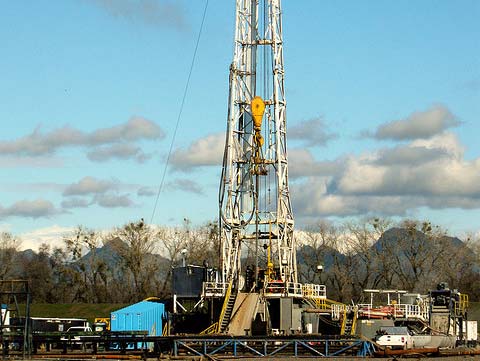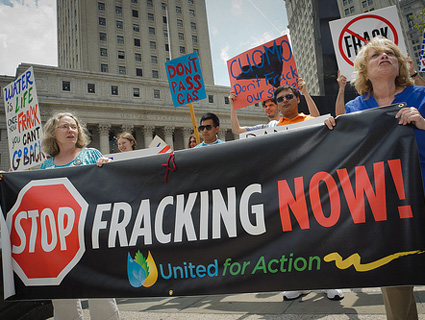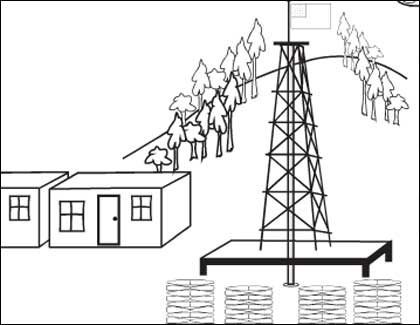Earlier this week, the New York Times reported that the US Department of Agriculture was considering changing its policies on loans to home- and business-owners in rural areas to require environmental review on properties with oil and gas leases. The possible change would have subjected those properties to a thorough examination of the potential risks posed by fossil fuel extraction before the USDA granted loans—which could have been a very big deal in rural communities where hydraulic fracturing, a process used to extract natural gas from shale rock, has become an issue. But a statement issued by Agriculture Secretary Tom Vilsack on Tuesday indicates that the department is not moving forward with those plans.
Currently, lands where an oil or gas company has a leases to drill are granted what’s known as a “categorical exclusion” from the National Environmental Policy Act, a law that requires environmental review on any federal projects. The article over the weekend indicated that USDA was considering requiring this NEPA review before granting loans and loan guarantees through the Rural Housing Service and the Rural Business and Cooperative program, two USDA efforts designed to help rural homeowners and businesses, respectively by providing low-interest loans. The USDA provides a total of $165 billion in loans and loan guarantees, and a lot of that money goes to states where oil and gas leases are becoming more common.
If the USDA did decide to enforce NEPA review on properties with oil and gas drilling leases, it would likely have had broad implications for anyone seeking a loan for property on that land, as it could affect property and resale values. It would have meant closer scrutiny of potential environmental impacts, and would have made it more difficult—if not impossible—to obtain these rural loans on leased land if the review cited major impacts, as the Times piece noted.
Here’s Vilsack statement on Tuesday, affirming that those properties will still be exempt from those reviews:
As indicated in previous statements, USDA will not make any policy changes related to rural housing loans. The information provided to Congressional offices on March 8, 2012 was premature and does not reflect past, current or future practices of the department.
Tomorrow, I will authorize an Administrative Notice reaffirming that rural housing loans are categorically excluded under the National Environmental Policy Act.
According to sources who have been following the issue in Washington, the possible change to require NEPA reviews was only a discussion draft and had not been approved by senior officials. The USDA did not respond to a request for further comment on potential concerns within the agency about these loans and enforcement of NEPA.
Environmental groups that have been following concerns related to fracking expressed disappointment on Tuesday about the USDA’s decision not to enforce NEPA on these loans.”We’d hope Secretary Vilsack would stand by the assessment of his colleagues at USDA who believe a full, thorough environmental review of these leases take place first,” said Environmental Working Group spokesman Alex Formuzis. “The potential risks fracking poses to our land, air and water demands the government take the necessary precautions at its desposal when possible.”













